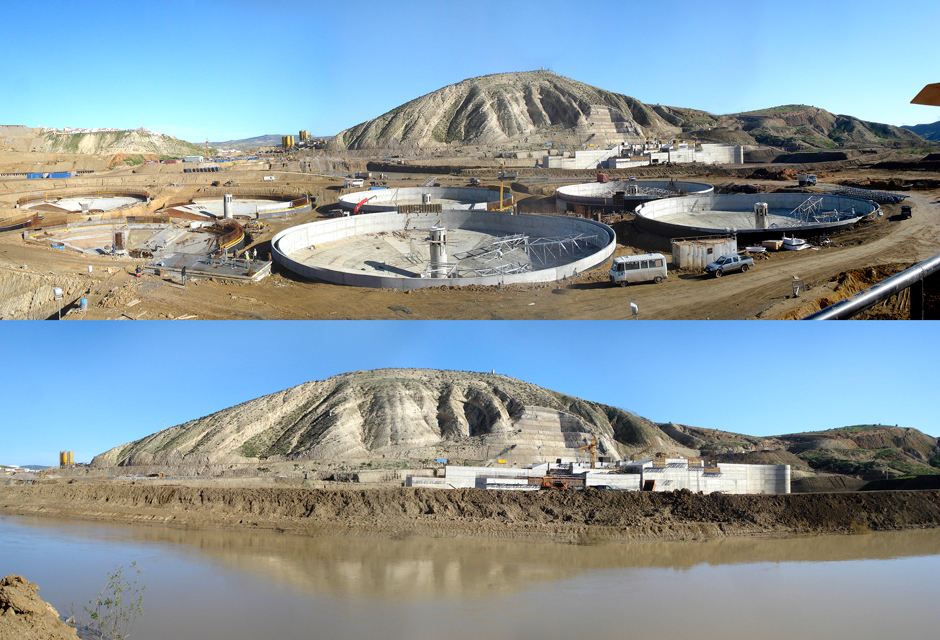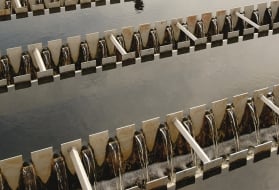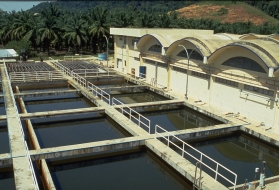Mostaganem-Arzew-Oran drinking water production plant (Algeria)

In the early 2000’s, in order to cope with global environment challenges of water management in a context of hydric stress, the Algerian authorities initiated a series of major water infrastructure construction projects.
On April 24th 2006, the Agence Nationale des Barrages et Transferts contracted with the consortium SUEZ / MAPA for the design, build and operation & maintenance of the drinking water treatment plant of Sidi Lahdjel.
With a capacity of 561,600 m3/day, the plant of Sidi Lahdjel, the second largest plant in Algeria, is part of a large project of water transfer system which provides today the neighbouring cities of Mostaganem-Arsem-Oran (MAO).
water treatment
The raw water, coming from Chéliff dam, is first pretreated in a pre sedimentation plant (820,800 m3/d) and then conveyed to Sidi Lahdjel drinking water treatment plant (Mostaganem-Arsem-Oran).
aeration:
The aeration is the first stage of the drinking water treatment. Sidi Lahdjel is equipped with a cascade aeration.
clarification:
The water is then clarified 6 Densadeg® 2D, an efficient separation process, allowing to obtain :
- A speed lamellar settling,
- Efficient sludge thickening
- High quality settled water
- Low sensitivity to the load and flow variations
- Net settling surface of 169 m² with fast mixers
- Speed lamellar settling with 6 settlings in operation: 23 m3/m2/h
- Speed settling: 13,5 m/h
filtration:
The clarified water is filtrated on 18 Aquazur® V sand filters (unit flow: 1,300 m3/h)
- Surface of each filter: 151.4 m²
- Standard speed filtration : 8.58 m3/m2/h
physico-chemical disinfection :
The filtered water receives a final disinfection treatment with injection of chlorine gas.
The water is then stored in 2 tanks (unit capacity: 55,000 m3), allowing to maintain a production reserve of more than 4 hours with a flow at 561,600 m3/h.
Bookmark tool
Click on the bookmark tool, highlight the last read paragraph to continue your reading later












